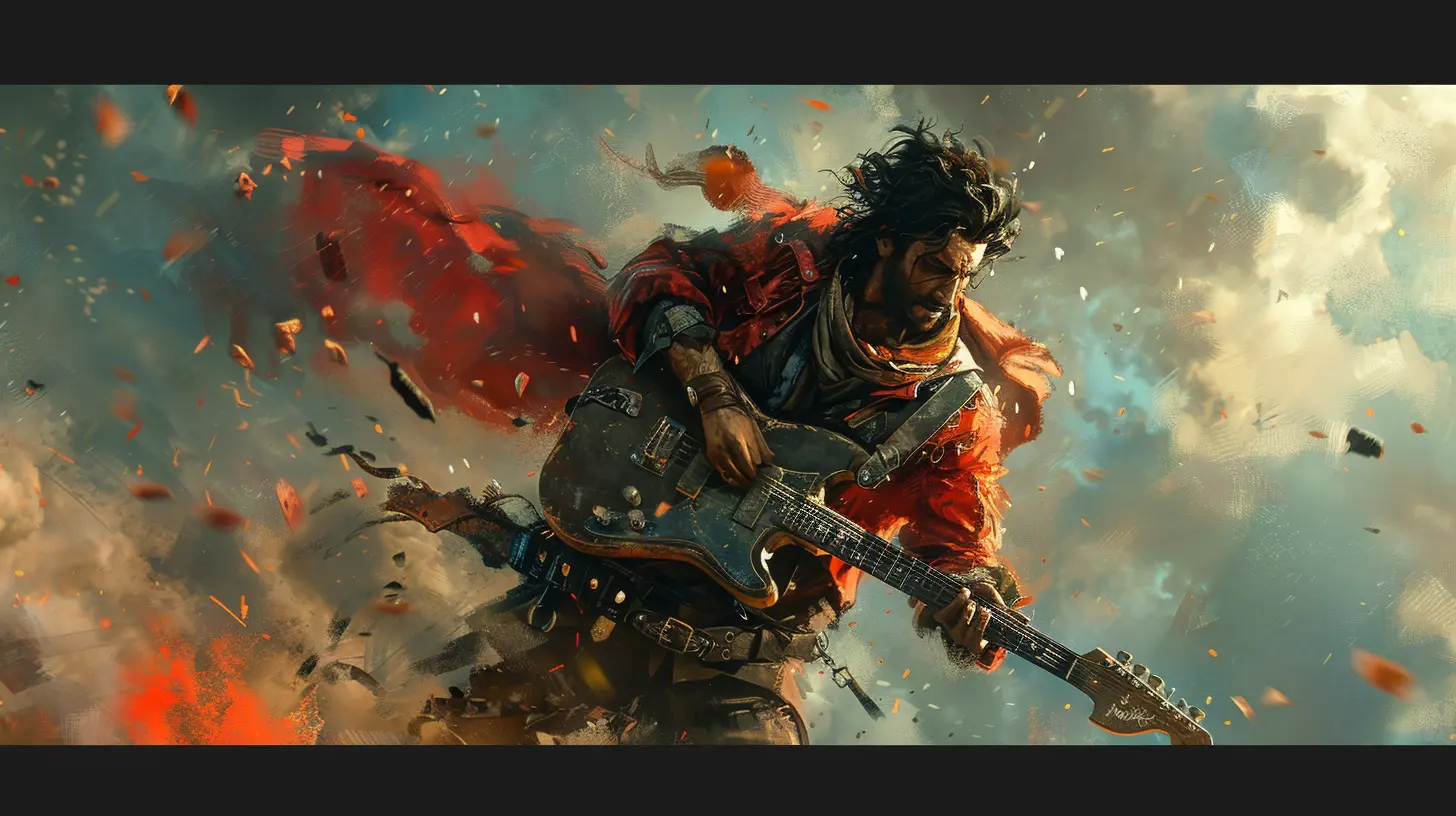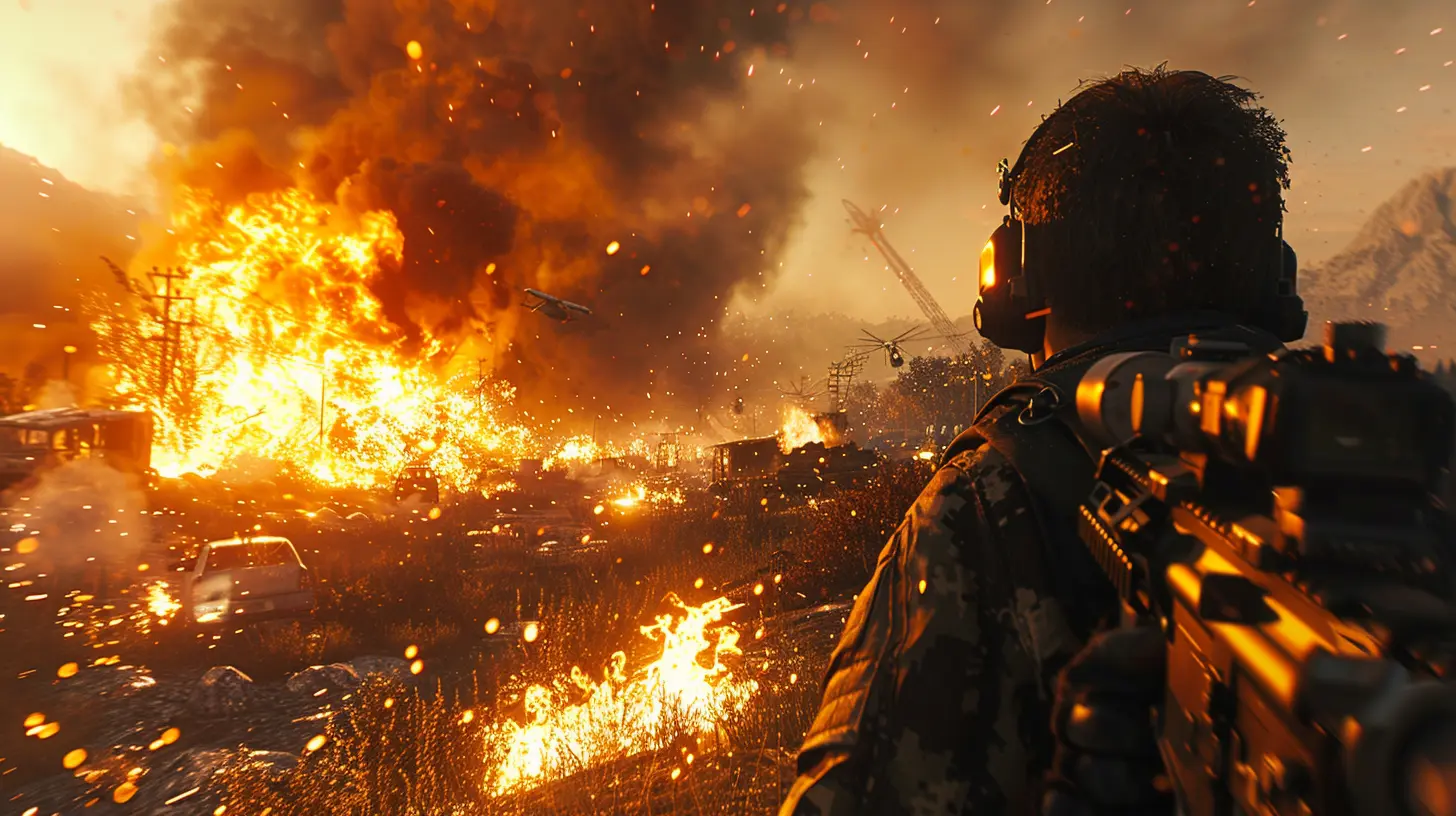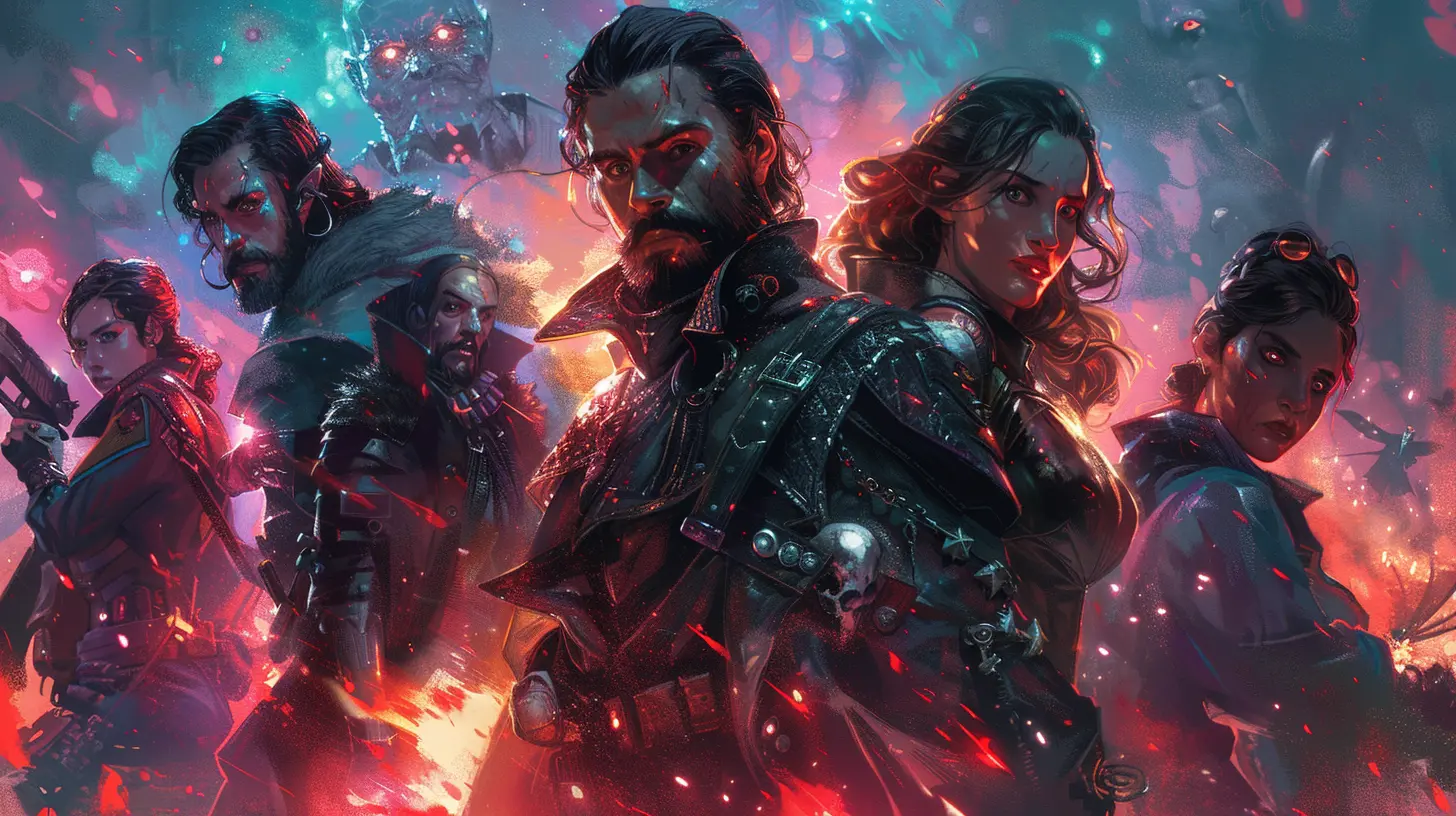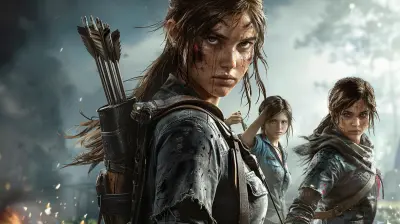11 December 2024
When was the last time you played an action game with the sound off? Chances are, not often. Sound and music in games aren’t just background noise—they’re a core part of the experience. Whether it’s the bass-heavy thud of an explosion, the tense hum of an impending boss fight, or the subtle rustling in the distance warning you of an ambush, audio plays a crucial role in how we play, feel, and react in action games. But how, exactly, does sound and music impact your gameplay? Let’s dive in.

The Psychology of Sound in Gaming
First, let’s think about this: why is sound so important? The answer lies in how our brains process audio. Sound triggers emotional responses. A high-pitched screech can make us uneasy, while a soothing melody can calm us. Action games capitalize on this by using sound to keep you engaged and emotionally invested.For example, imagine you’re sneaking through a dark hallway in a stealth-action game. You hear faint, echoing footsteps nearby. Your heart races, your palms sweat, and you instinctively crouch, trying to stay hidden. That’s not just the gameplay mechanics at work—that’s the sound design pulling strings in your brain. The right sounds make every moment feel urgent, immersive, and alive.

Setting the Atmosphere and Tone
One of the biggest ways sound impacts action games is by setting the mood. Think of the intense orchestral score during a climactic boss fight. It screams, “This is it! Everything’s on the line!” Without that music, the fight would feel hollow, wouldn’t it?Similarly, ambient sounds create a sense of place. In an action game set in a war zone, you’ll hear distant gunfire, muffled explosions, and the faint buzz of radio chatter. These audio cues trick your brain into believing you’re actually there. Without them, the game world would feel flat and lifeless, like walking through a movie set instead of a real battlefield.

Sound Cues: Your Silent Guides
Ever notice how some sounds aren’t just for atmosphere but are actually there to guide you? Action games often use audio cues to give players hints without outright telling them what to do.Picture this: you’re playing a survival-action game, scavenging for resources in a creepy abandoned building. Suddenly, you hear a faint growl in the distance. What do you do? Instinctively, you prepare yourself—maybe you switch to a stronger weapon or slowly back away from the direction of the growl. That one sound just gave you crucial information without the need for text or dialogue.
Audio cues are particularly effective because they tap into our natural instincts. We’re wired to respond to sound—it’s a survival mechanism. Game developers use this to their advantage, making sure we’re always alert and engaged.

Heightening Emotional Impact
Let’s talk about those goosebumps you get during epic in-game moments. More often than not, it’s the music that seals the deal. Action games know exactly how to tug at your emotions, ramping up the intensity with a well-timed score.Take “DOOM,” for example. Its heavy-metal soundtrack perfectly matches the relentless combat, making you feel like an unstoppable force of destruction. On the other hand, quieter moments might use soft, eerie melodies to make you feel vulnerable or uncertain. The music adapts to what’s happening on-screen, amplifying the emotional weight of every moment.
Without music, those triumphant victories or tragic defeats wouldn’t hit nearly as hard. It’s like watching a movie’s most emotional scene with the volume muted. Sure, you’d get the gist, but it wouldn’t feel the same.
Enhancing Gameplay Mechanics
Sound doesn’t just spice things up—it can actually improve your performance in action games. Think about how you rely on footsteps in a multiplayer shooter. Hearing an enemy approach from behind can be the difference between victory and defeat.Or consider games with rhythm-based combat, where timing your attacks to the beat of the music is essential. In these cases, sound isn’t just an accessory; it’s part of the core gameplay. Without it, certain mechanics would completely fall apart.
Even subtle audio effects, like the click of an empty gun, provide vital gameplay feedback. That one sound tells you it’s time to reload, saving you from wasting precious seconds figuring out why your weapon isn’t firing. These functional audio elements keep the gameplay smooth and intuitive.
Immersion at Its Finest
Immersion is the holy grail of gaming, and sound is one of its most powerful tools. Action games thrive on pulling you into their worlds, making you forget you’re holding a controller or sitting at a desk. Sound is what bridges the gap between the player and the game.Imagine playing a high-stakes chase sequence in silence. It wouldn’t feel nearly as exhilarating, would it? Now add a fast-paced soundtrack, the roar of engines, and the screech of tires. Suddenly, you’re not just playing a game—you’re in the middle of an adrenaline-pumping car chase.
Sound also works hand-in-hand with visuals to create a cohesive experience. For example, when a massive explosion lights up the screen, the accompanying boom reinforces its impact. Without sound, the explosion would lack weight and urgency.
The Subtle Power of Silence
But wait—what about silence? Believe it or not, the absence of sound can be just as impactful as the loudest explosions. Strategic silence can build tension, forcing you to focus on every tiny noise. Horror-action games like “Dead Space” are masters of this. They’ll cut the music entirely, leaving you in eerie, oppressive silence. Then, when you least expect it, they hit you with a sudden, terrifying sound that sends shivers down your spine.Silence is the unsung hero of great sound design. It’s the pause before the storm, the calm before chaos. Used sparingly, it can be incredibly effective in heightening suspense and keeping players on edge.
How Bad Sound Design Can Ruin Everything
Now that we’ve covered how great sound enhances gameplay, let’s flip the coin. What happens when the sound design is bad? The short answer: it’s a disaster.Poorly balanced audio, like music that drowns out dialogue or repetitive sound effects, can pull you out of the experience. Worse, it can make the gameplay frustrating. Imagine trying to locate an enemy based on their footsteps, only to realize the audio isn’t directional. Or playing a game where the same music loop plays on repeat to the point of annoyance. Bad sound design is like a scratch on a favorite record—it ruins the whole vibe.
Wrapping It Up
Sound and music are the unsung heroes (pun intended) of action games. They shape the atmosphere, guide your actions, amplify emotions, and immerse you in the game world. Whether it’s the adrenaline-pumping beats of combat or the eerie silence of a suspenseful moment, audio is what makes action games truly unforgettable.So, the next time you pick up your controller or settle in at your keyboard, take a moment to appreciate the sound design. Because without it, our favorite action-packed adventures wouldn’t be the same. Think about it—would you really want to face a final boss without that epic soundtrack cheering you on? I didn’t think so.







Galina McNair
I'm fascinated by how sound and music shape our emotions during gameplay! What specific audio elements do you think most influence our experience in action games?
January 28, 2025 at 5:22 AM